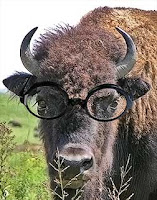 Thank you for visiting. Our computer network has been secretly analyzing your personality for several months and learned this about you:
Thank you for visiting. Our computer network has been secretly analyzing your personality for several months and learned this about you:You have a need for other people to like and admire you, and yet you tend to be critical of yourself. While you have some personality weaknesses you are generally able to compensate for them. You have considerable unused capacity that you have not turned to your advantage.
Disciplined and self-controlled on the outside, you tend to be worrisome and insecure on the inside. At times you have serious doubts as to whether you have made the right decision or done the right thing. You prefer a certain amount of change and variety and become dissatisfied when hemmed in by restrictions and limitations. You also pride yourself as an independent thinker; and do not accept others' statements without satisfactory proof. But you have found it unwise to be too frank in revealing yourself to others.
At times you are extroverted, affable, and sociable, while at other times you are introverted, wary, and reserved. Some of your aspirations tend to be rather unrealistic.84% of people (tests over several decades) report this as accurately describing them when told beforehand it is an assessment of their personality. Wonder why this seems to be as accurate as it does? Read more about the Forer effect.
(And no, we don't have a secret network. This is a trick. Click the link and read more.)

































